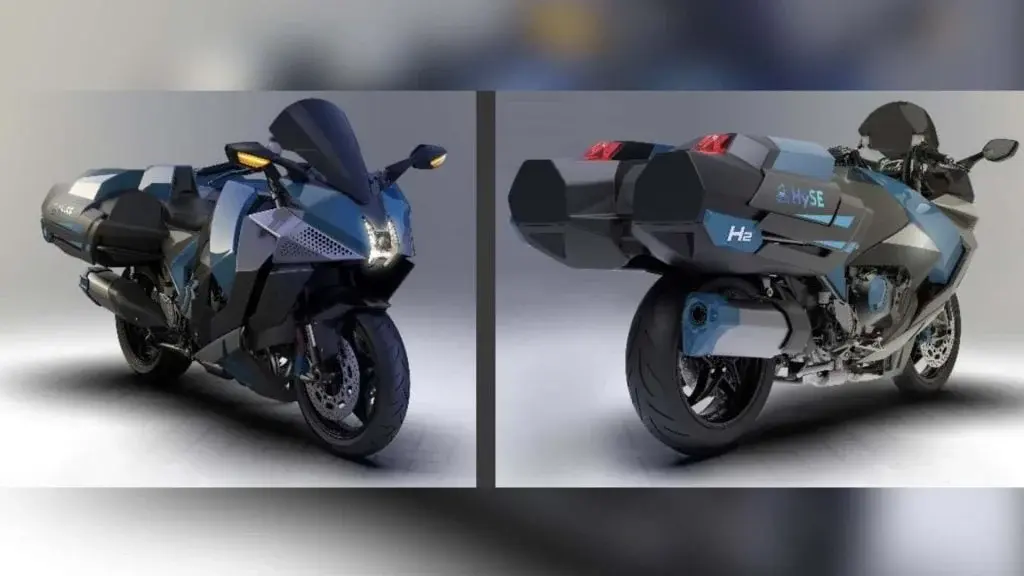Kawasaki’s Leap into the Future: Introducing the First Hydrogen Engine Motorcycle Prototype
Kawasaki, a renowned manufacturer of high-performance motorcycles, has recently made a significant stride towards the future of green transportation. The company unveiled its first hydrogen engine motorcycle prototype, joining other industry giants such as Honda, Suzuki, Toyota, and Yamaha in the pursuit of carbon neutrality and environmentally friendly vehicles.
A Response to Climate Change Challenges
The collaboration between Kawasaki and the aforementioned companies, known as the HySE consortium, is a collective effort to address the pressing need for carbon neutrality. As the world faces increasingly critical climate challenges, the shift towards sustainable energy sources has become imperative.
Aesthetics Symbolizing a Greener Future
The prototype, based on the popular Kawasaki Ninja H2 SX, features a design that breaks away from the traditional Kawasaki color scheme. Instead, it showcases calming shades of blue, aligning with the HySE logo. This intentional aesthetic choice serves as a symbol of the serene and cleaner future promised by hydrogen-powered vehicles.
Motorcycle Manufacturers Embrace Hydrogen Power
Kawasaki’s venture into hydrogen power is not an isolated endeavor but rather part of a broader trend among major motorcycle manufacturers. These companies are progressively redirecting their focus towards alternative energy sources, recognizing the potential of hydrogen as a clean and efficient fuel.
Advantages of Hydrogen-Powered Vehicles
Hydrogen-powered vehicles offer several advantages over traditional gasoline engines. They produce zero emissions at the point of use, with water being the only byproduct. This characteristic makes them an attractive option for reducing pollution and mitigating the effects of climate change. Additionally, hydrogen refueling can be much faster than battery charging, providing a practical advantage for users.
Challenges on the Road to a Hydrogen-Powered Future
While the potential of hydrogen-powered vehicles is promising, there are challenges that need to be overcome. The infrastructure for hydrogen fueling is still in its early stages, requiring significant investment to make it widely accessible. Furthermore, the production of hydrogen itself must also become more sustainable for it to truly be a green solution.
In conclusion, Kawasaki’s unveiling of its first hydrogen engine motorcycle prototype marks a significant step towards a greener future in transportation. As major motorcycle manufacturers join forces to explore alternative energy sources, hydrogen power emerges as a promising solution. While there are challenges to overcome, the pursuit of carbon neutrality and sustainable vehicles remains a vital goal in the face of climate change.


Leave a Reply